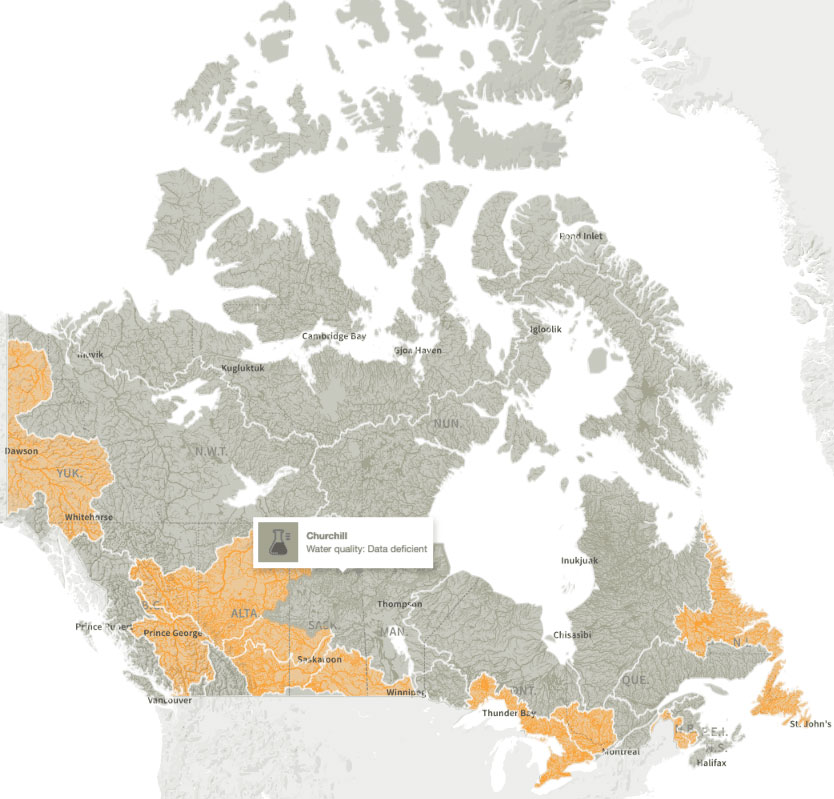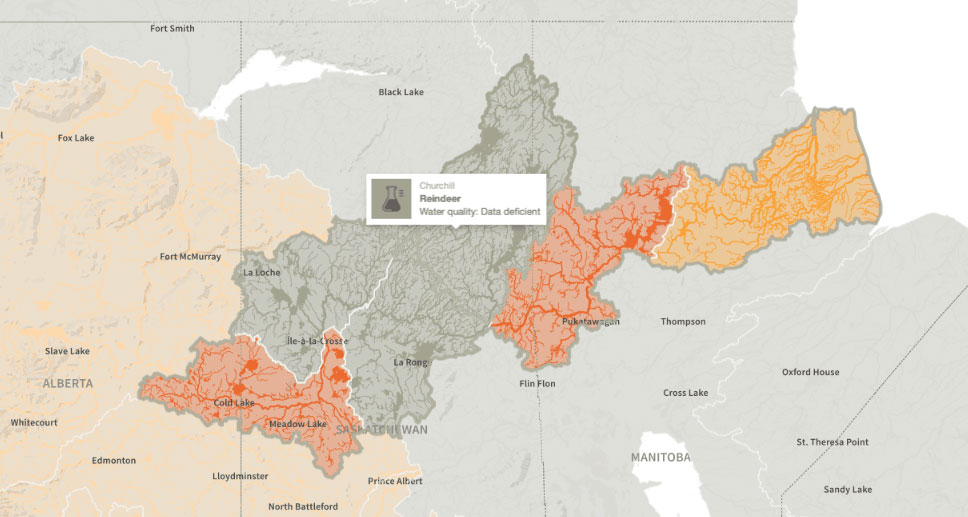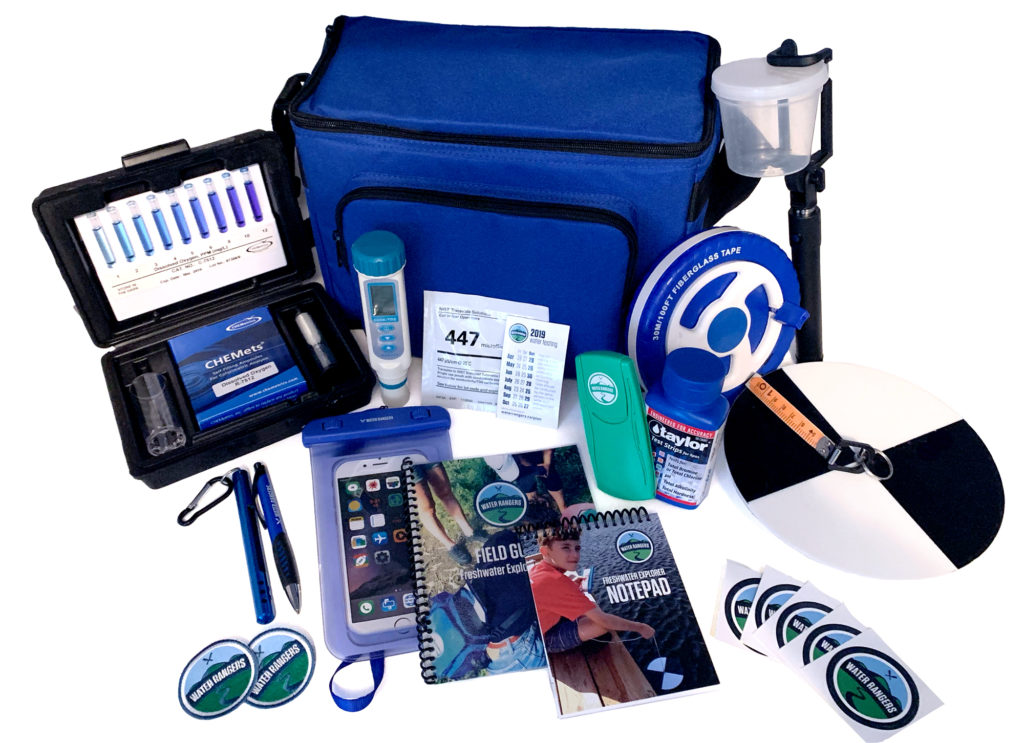Help Canada collect baseline data for water quality!
Do you live in a region of Canada that is data deficient for water quality data?
Interested in starting water testing? Apply before May 12!
*The application period has now closed. If new grant programs open, we will announce them on social media! Follow us on twitter or Facebook.*
Water Rangers, with the help of the WWF’s Loblaw Water Fund, is building water quality testing capacity in 25 data deficient subwatersheds!
Monitoring regularly leads to greater protection of our waterways, both directly and indirectly (the ‘why’ here). We’re conducting important research on how participating in citizen science creates valuable data for scientific research and that it changes perceptions and behaviours. If you love water and want to learn more about water quality, you might just be qualified to become a champion water tester through Water Rangers!
Each successful community will receive a citizen science testkit, get online training, and be connected with a growing network of communities participating in citizen monitoring. This program is a catalyst for further testing in your region, and our dream is that it will provoke meaningful progress toward protecting freshwater.
Using equipment that allows your community to understand basic water health parameters such as temperature, clarity, pH, hardness, alkalinity, dissolved oxygen and conductivity, we’ll help you create baseline data and educate your communities on the value of long-term monitoring, all while giving you tools to manage it long-term. We believe that when people learn about, then test water, they are more likely to act to protect waterways. Our project encourages citizens to take on environmental challenges and connects their data to regional and national databases to help fill gaps!
Step 1: Find out if you are part of a data deficient sub-watershed
Go to the watersheds map, filtered by Water Quality. You’re looking at the watershed level.


If your subwatershed is grey, your area is considered ‘data-deficient’, and we want you to apply for this program!
Step 2: Commit to conducting water testing regularly
- You have regular access to fresh water (lake, river or stream) from June to October
- You are part of a community (or want to create a new group) who is interested in learning about water stewardship
- You commit to test at 4 locations at least 4 times (monthly testing!)
Step 3: Help fill in gaps for water testing and inspire more water stewards!
- Your data will be shared with WWF’s watershed map. We will also help you share with local data hubs if they exist!
- We encourage you to teach others how to test waterways, and will help you plan successful excursions.
How it works:
- Apply by Sunday May 12 (fill out the form below). You will be notified by May 16 if you were successful! Successful applicants will be asked to fill out a pre-survey for research purposes. If you want to participate in other research projects, you will be able to say so then.
- In Mid-May we will mail you your testkit!
- Mid/End of May you attend an online-person training session, where you can ask questions, meet other participants. Water quality testing includes tests for: temperature, pH, hardness, alkalinity, water clarity, dissolved oxygen. Learn more about the testkit
- Every month, you will participate in regular monitoring. You will collect at least 15 water quality results over the season, but many do more!
- You will get email reminders and check-ins, as well as challenges that encourage you to have fun and share your knowledge with others. Most challenges will be released every 2 weeks, and will give you tips on how you can make it fun for you and your family/friends/community. You will also learn from expert videos and share photos to help inspire those around you.
- At the end of the testing season, you’ll fill out a questionnaire and see how you and the other participants did! If you completed all your requirements, and want to continue in 2020, you’ll be able to keep your testkit.
You’ll be getting over $350 worth of supplies to help you throughout the summer, so we’re looking for people who are committed. Examples of community groups include: Community organizations, Lake Associations, Youth Groups, Clubs, informal friend groups, etc.

The application period is now closed. We will notify people who were successful on May 16th!